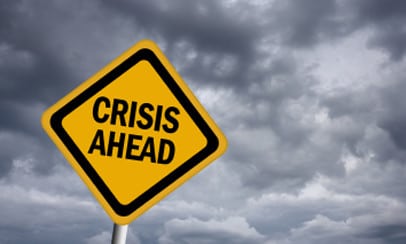
One week ago I offered PR lessons that were pulled from 2017 headlines. Due to the year’s plethora of news, there are many more PR lessons to be learned by paying attention to the news. Here are a few more, most of which deal with crisis PR.
- Situation: Equifax said information from credit reports of almost half the U.S. population was hacked beginning in May but didn’t announce the breach until September 7.
Lesson to remember and relevance to our business: By failing to reveal the security breach when it was initially discovered, Equifax broke a cardinal rule of PR and crisis management. Adding to the PR problem was that several Equifax executives sold stock in the company prior to the public announcement. Withholding negative information that is bound to become public leads media and government watchdogs to intensify their missions.
- Situation: Stories over several days in April told of a BP well off Alaska leaking oil and gas. On April 18, the Wall Street Journal reported that the leak was under control but mentioned that BP had past oil spills in the region.
Lesson to remember and relevance to our business: Once a company has been in a crisis situation the crisis becomes part of its DNA and can be included in reports about the company's past problems, as well as stories about similar crises of other companies. A story in the New York Times April 16 also reminded readers of BP’s 2010 oil spill in the Gulf of Mexico. When responding to a crisis, don’t ignore planning how to answer questions about past crises.
- Situation: While he was the White House communications director, Anthony Scaramucci’s vulgar tirade while talking to a New Yorker writer resulted in major media and TV headlines for days beginning in late July and continuing into August.
Lesson to remember and relevance to our business: When speaking to a journalist never assume anything is off the record. In addition, just because you say something is off the record doesn’t mean the reporter has agreed with you unless you get an affirmative reply. Even then it’s best not to say anything that you don’t want reported because the information might appear in a story months later, attributed to an anonymous source.
- Situation: On July 7, the Wall Street Journal used inside baseball journalistic jargon words–sidebar and tagline–in its Corrections & Amplifications box.
Lesson to remember and relevance to our business: When writing press releases for general distribution, the norm should be to use words that anyone can understand. On occasions where only an industry wide word is appropriate, the meaning must be explained.
- Situation: All during September, hurricanes, the Equifax crisis and President Trump's attack on the NFL and its players for kneeling during the National Anthem dominated news coverage.
Lesson to remember and relevance to our business: Despite the most meticulous planning, when staging a press conference or arranging interviews, PR is at the mercy of the news and the media, many of which would rather cover an ongoing story than a brand's one-day announcement. An alternative to suggesting a costly press conference where only a few reporters attend, hold a small roundtable discussion with beat reporters.
- Situation: On August 28 and 29, right in the midst of wall-to-wall coverage of Hurricane Harvey's disastrous romp through Houston, major coverage was given to new revelations concerning White House staffers' contact with Russians during the 2016 election campaign.
Lesson to remember and relevance to our business: This lesson somewhat relates to the previous lesson. Releasing damaging information during a major news story, hoping that it will be buried, usually will fail to prevent the media from reporting on the bad news. This lesson also applies to the oft-disproved PR tenet of releasing bad news right before a holiday or weekend. Neither of these tactics work.
Arthur Solomon is a former journalist and SVP/senior counselor at Burson-Marsteller. A frequent contributor to PR publications, he was on the Seoul Peace Prize nominating committee. He can be reached at: [email protected]
